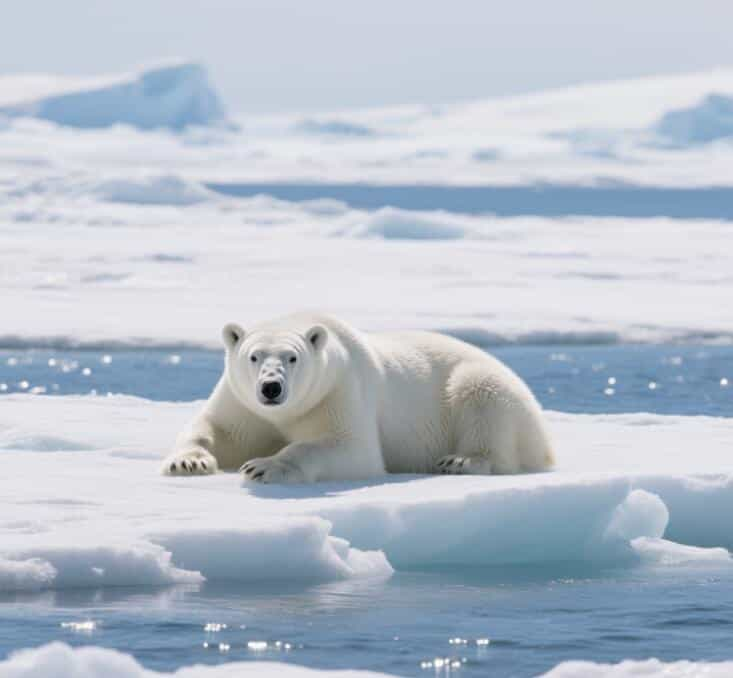For centuries, humans have arrogantly assumed we were the only intelligent species on Earth. But as science peels back the layers of animal cognition, we’re discovering minds that rival—and sometimes surpass—our own in remarkable ways. From tool-making crows to mathematically gifted bees, the animal kingdom is full of unsung geniuses that challenge everything we thought we knew about intelligence.
1. Masters of Innovation: Nature’s Engineers
While we boast about our technology, animals have been engineering solutions for millions of years:
- New Caledonian crows don’t just use tools—they manufacture them, bending twigs into hooks to fish out insects.
- Octopuses solve complex puzzles, unscrew jars from the inside, and even use coconut shells as portable armor.
- Chimpanzees in Senegal have entered their Stone Age, sharpening sticks to hunt bushbabies.
- Dolphins wear sea sponges like protective gloves while foraging on rough ocean floors.
Mind-Blowing Example: In Tokyo, carrion crows drop nuts on crosswalks, wait for cars to crack them open, then retrieve their snack when the light turns red—demonstrating an understanding of traffic patterns that would confuse many humans.
2. Emotional Sophistication: More Than Just Instinct
The myth that animals lack complex emotions has been completely debunked:
- Elephants hold multi-day funeral rituals, gently touching the bones of deceased herd members with their trunks.
- Rats giggle when tickled (at frequencies too high for human ears) and will prioritize freeing trapped companions over eating chocolate.
- Sheep recognize up to 50 individual faces and show measurable stress when separated from friends.
- Dogs experience genuine joy when reunited with loved ones—MRI scans show their brains light up similarly to humans.
Heart-Wrenching Reality: Orca mothers have been observed carrying dead calves for weeks, sometimes to the point of malnutrition—a display of grief so profound it challenges our understanding of animal consciousness.
3. Cultural Traditions and Social Learning
Many animals have cultures that are passed down through generations:
- Meerkats run structured “schools” where adults teach pups how to safely handle venomous scorpions (they remove the stingers first).
- Vampire bats form lifelong friendships and will regurgitate blood meals to feed friends who had unsuccessful hunts.
- Humpback whales coordinate bubble-net fishing across miles of ocean using precisely timed songs.
- Prairie dogs have one of the most sophisticated animal languages, able to describe intruders’ size, color, and even clothing patterns.
Human Comparison: While we struggle with workplace collaboration, ants demonstrate flawless democratic decision-making when relocating their nests—without a single Zoom meeting required.
4. Unexpected Cross-Species Friendships
Nature constantly surprises us with bonds that defy evolutionary logic:
- A lioness in Kenya’s Samburu National Park adopted six oryx calves over several years, protecting them from other predators.
- Koko the gorilla formed a maternal bond with a kitten, signing “soft good cat” while gently cradling it.
- A wild dolphin in New Zealand regularly seeks out human swimmers to play with, even retrieving lost goggles.
- Service dogs can detect impending medical emergencies—from seizures to diabetic crashes—often before the person themselves realizes something is wrong.
5. Life Lessons from Our Animal Teachers
What animals demonstrate without words:
✅ Presence: A house cat’s complete absorption in watching a dust mote float by.
✅ Resilience: Monarch butterflies navigating 3,000-mile migrations across generations.
✅ Community: Wolf packs caring for injured members rather than leaving them behind.
✅ Adaptability: Urban foxes thriving in cities by mastering our garbage schedules.
Humbling Fact: While we invented alarm clocks, roosters naturally adjust their crowing to artificial light—proving they understand time better than many sleep-deprived humans.
6. Conservation Challenges We Can’t Ignore
As we learn more about animal intelligence, ethical dilemmas emerge:
⚠️ “Charismatic” species like pandas receive disproportionate conservation funding while equally intelligent but less cute creatures like octopuses are overlooked.
⚠️ Zoos preserve species but often fail to meet the psychological needs of highly intelligent animals.
⚠️ Climate change is forcing Arctic species to adapt at unprecedented rates—polar bears now swim impossible distances as ice disappears.
⚠️ The pet trade exploits cognitively advanced species like parrots (whose intelligence rivals primates) by keeping them in psychologically damaging isolation.
7. How to Respect Animal Intelligence in Daily Life
Simple but powerful actions anyone can take:
• For Birds: Apply window decals to prevent collisions (a leading cause of bird deaths).
• For Marine Life: Choose reef-safe sunscreen and reduce single-use plastics.
• For Urban Wildlife: Keep cats indoors (they kill billions of birds annually).
• For Farm Animals: Support cage-free and pasture-raised animal products.
Pro Tip: Planting native flowers helps pollinators—bees can recognize human faces and remember them for days!
The Profound Implications
The more we study animal intelligence, the more we’re forced to confront uncomfortable truths:
• An octopus’s distributed brain (with neurons in its arms) may process information more efficiently than our centralized brains.
• Elephants likely understand mortality—they carefully bury their dead and avoid the bones of unrelated herds.
• Pigs outperform three-year-old humans in video game tests requiring joystick skills.
Perhaps the most humbling realization is that while we’ve been testing animal intelligence against human benchmarks, they’ve been patiently tolerating our limited understanding all along.
Next time you lock eyes with a crow studying you from a fence post, remember: You’re being assessed by a creature that makes tools, plans for the future, and teaches its young. The true measure of our intelligence may ultimately be how well we learn to coexist with—and learn from—the other brilliant minds sharing our planet.
As primatologist Frans de Waal wisely observed: “We are not the only conscious beings on this planet—we’re just the ones who talk about it the most.”
